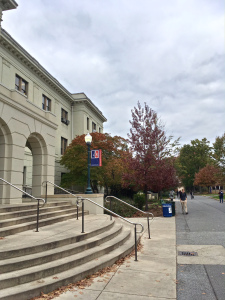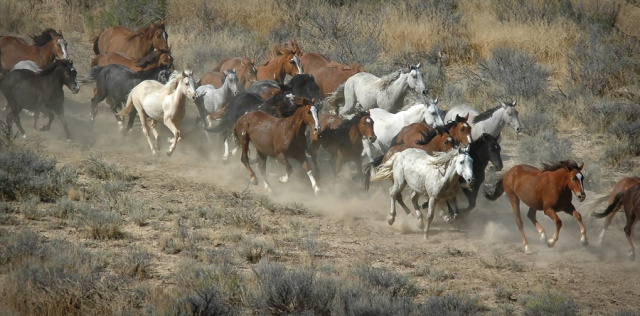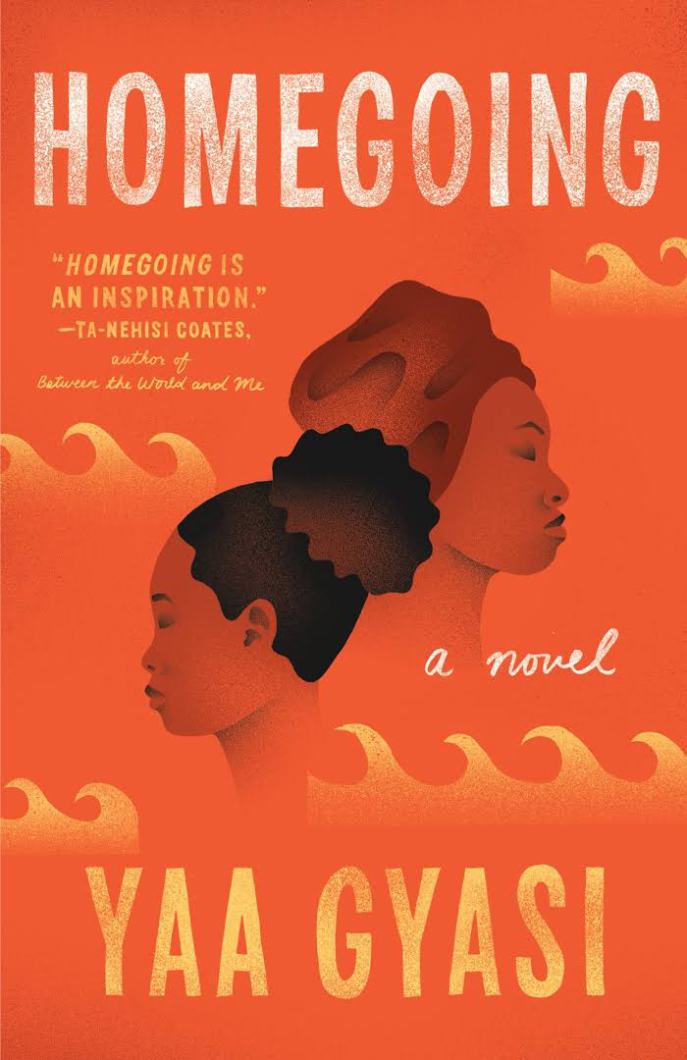The second morning of tours of D.C.-area colleges and universities dawned gray and chilly, but it didn’t dampen the enthusiasm of the counselors I joined at the first stop of the day for our visit to American University, one of several universities that is proud to call our nation’s capital its home.
 A quiet little hub in the midst of the city, American’s buildings have the sort of stately feel you’d expect to find in the nation’s capital.
A quiet little hub in the midst of the city, American’s buildings have the sort of stately feel you’d expect to find in the nation’s capital.
And what a tour stop it was!
Though American is, in fact, a research university, it considers itself to be very college- (and student-) centered – which is no mean feat when you consider that you’re talking about a school with just over 7,000 undergraduates and somewhere in the neighborhood of 5,000 graduate and professional students. While this means that, despite a student-to-faculty ratio of 12:1, the average class size manages to stray up to about 23 (which is still smaller than many high school classes students are accustomed to), but (more importantly!) all AU classes are taught by professors, not graduate assistants.
What’s more, AU has put a lot of thought into its broader curriculum so that it can be truly student-focused – things like re-imagining their First Year Experience program so that all new first-year students are housed together so they can become acquainted as a class and then placing the appropriate emotional and social support advisors in close proximity to easily aid any students who face transitional challenges. All first-year students also take courses that fall under the umbrella known as “AUX” – more commonly, the AU experience – which are designed to help them acclimate to college life and gain greater cultural competency as part of the AU community. The “Complex Problem” course adds to this educational experience by helping first-year students cultivate their research skills (a necessity on a campus with such ready access to undergraduate research opportunities).
 The day was a bit gray, but that didn’t prevent us from feeling welcome as we strolled around the main quadrangle.
The day was a bit gray, but that didn’t prevent us from feeling welcome as we strolled around the main quadrangle.
The university has also lowered its advisor-to-student ratio so that students have easier access to the people charged with helping them chart a path over the course of their time with at the institution and the primary core course requirements have become more writing-intensive and now includes more interdisciplinary courses to help students better-navigate an increasingly complex job market and world. AU further assists its upperclass students in their future endeavors with off-campus study opportunities (70% of students will study abroad during their time at the university, including to places like AU’s centers in Brussels, Madrid, and Kenya) and by using the plentiful internship opportunities available right on the campus doorstep within the city of Washington D.C. itself.
(Fun fact: AU schedules no classes on Wednesdays so that students can devote as much time as possible to internships and the campus U-Pass system the means that every AU student gets free bus and train rides on the city’s readily-available public transportation. Thanks to this, 89% of AU students will do at least one internship before graduation and 92% of them have jobs within six months.)
For those riders who fear that a city university won’t offer the right outlets for their equestrian pursuits, never fear! American has competed in the IHSA hunt seat ranks for nearly 15 years and has a well-organized club team in place. They ride an hour north of campus in Gaithersburg, Maryland at Oatland Stables once per week (sharing the barn with the team from the University of Maryland) and utilize bi-weekly fundraisers on campus to help keep costs down for members. So while not an intensive varsity program, the likes of which some students may prefer when they embark on their college search, American can provide an outlet for riders who wish to continue competing at a slightly less-time-consuming level while pursuing their academic and career goals within one of our nation’s most vibrant and exciting cities.
Should American be a university you consider as you build your school list? Contact me to discuss or pick up a copy of my book to guide your search.
Advertisements Share this:




